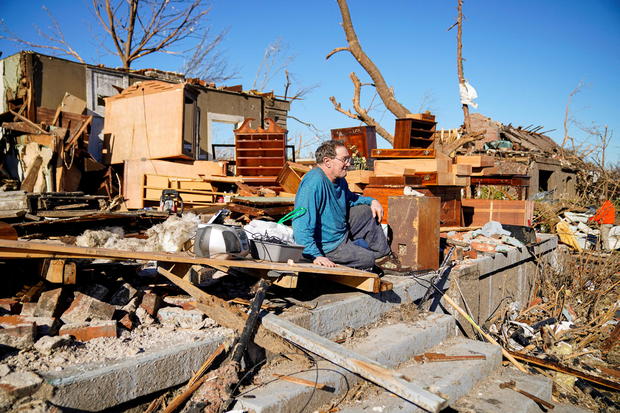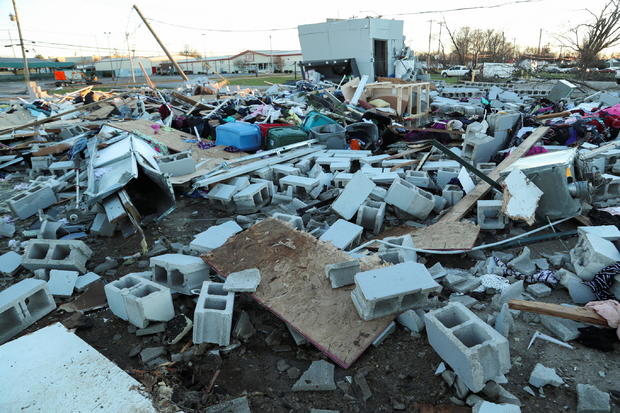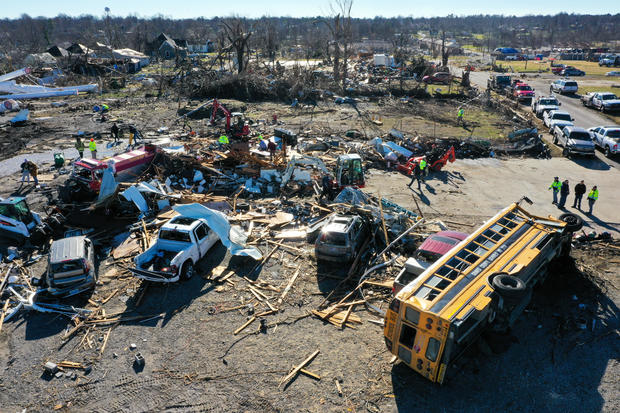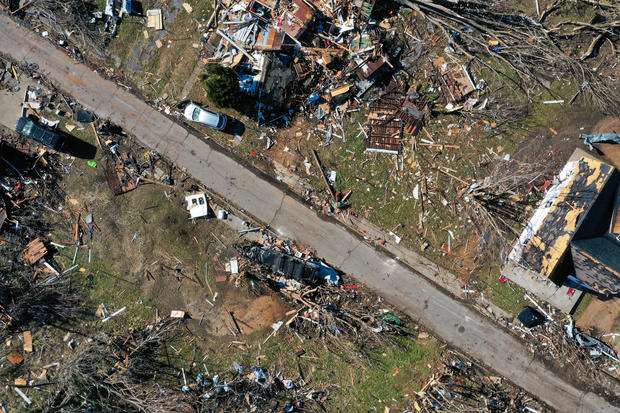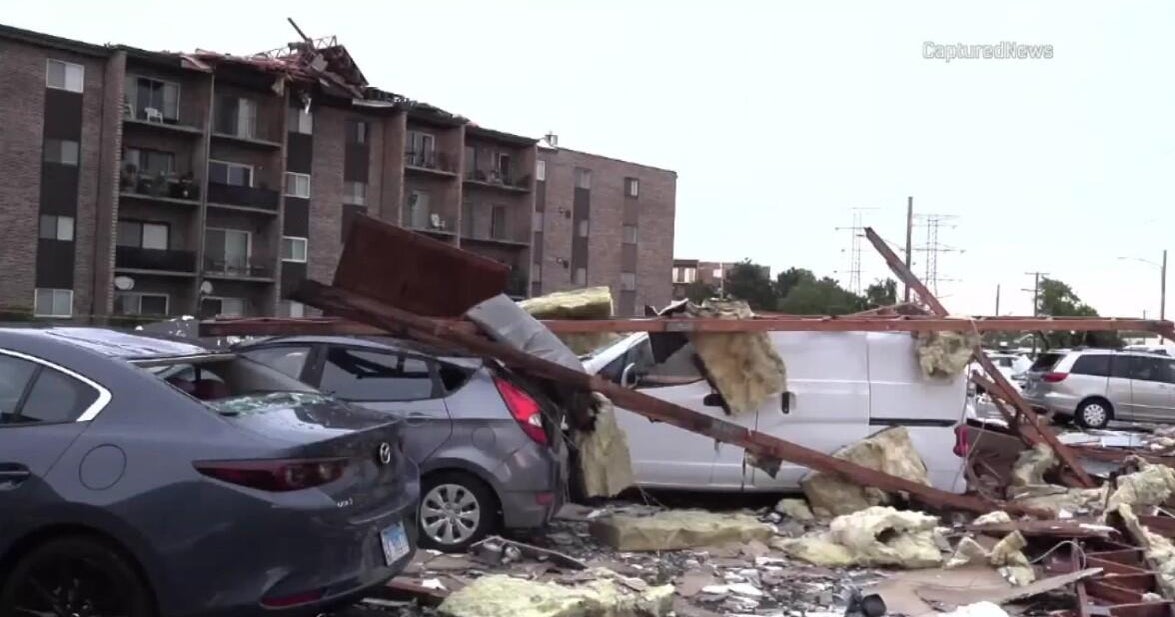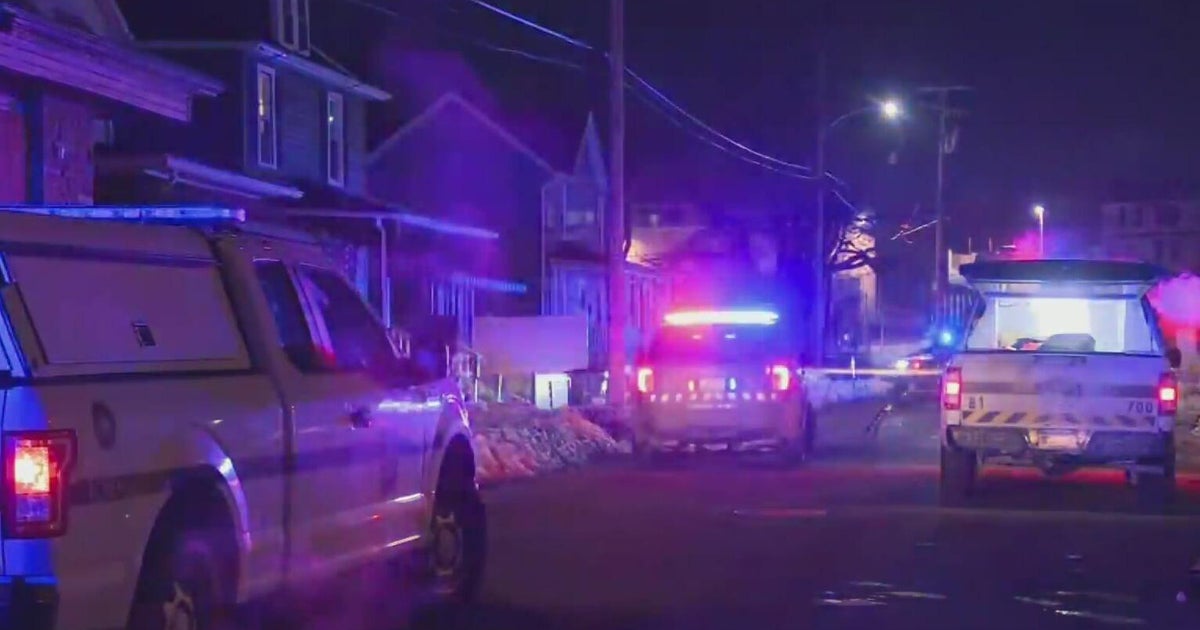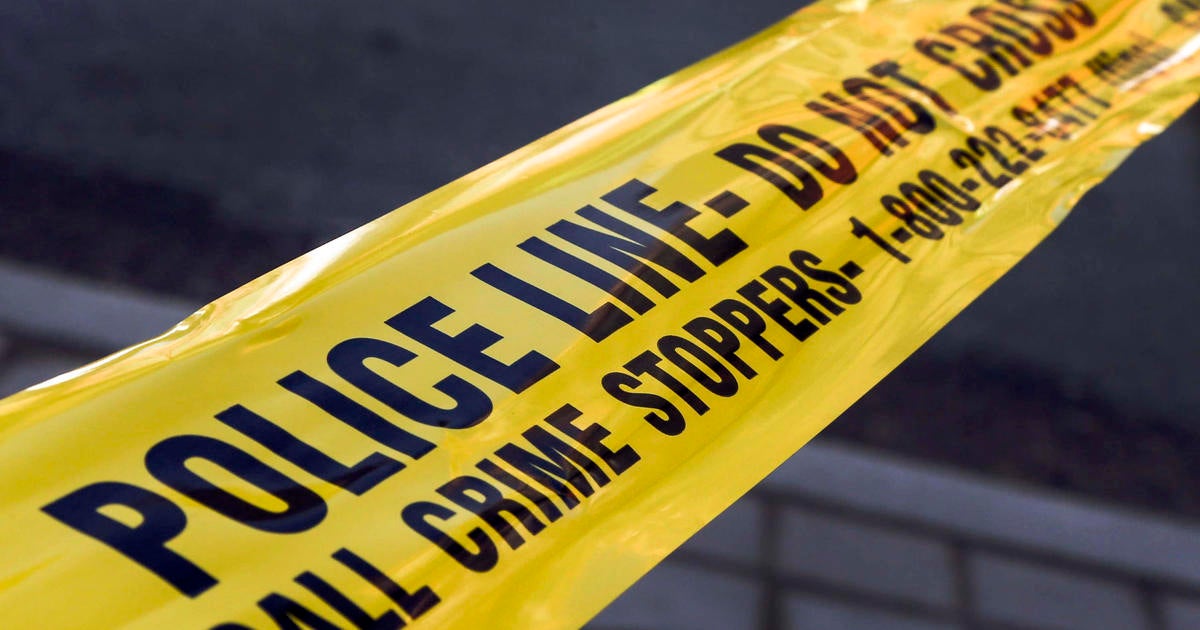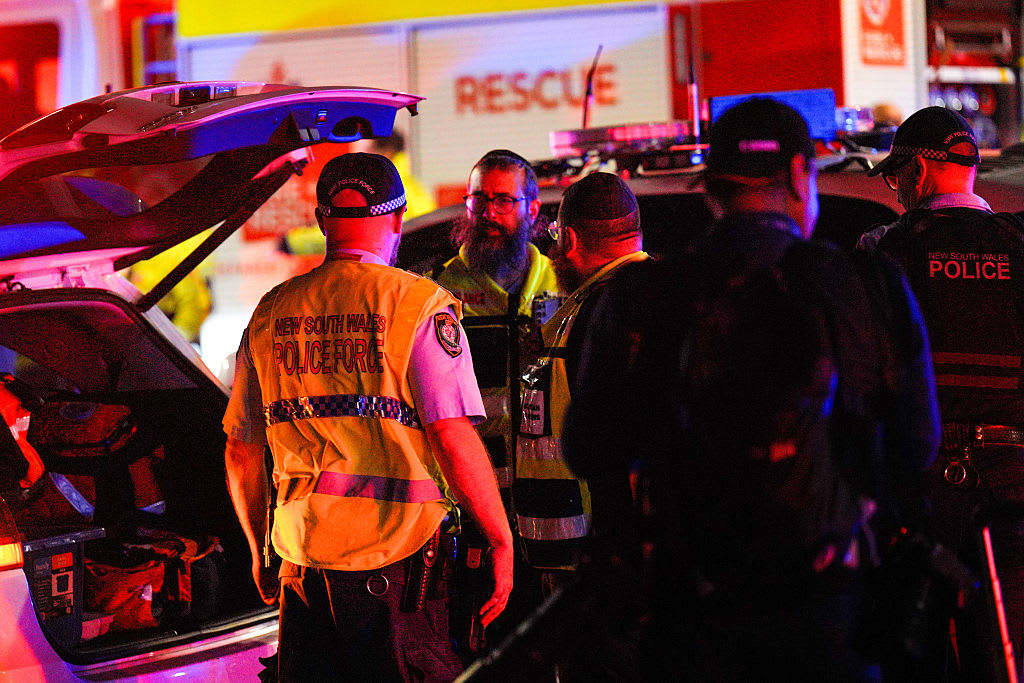Glimmer of relief amid deadly tornadoes' devastation
At least eight people at a Kentucky candle factory were killed during a barrage of devastating tornadoes across several Midwestern and Southern states late Friday night into Saturday, but the death toll in that facility, at least, will be far lower than first feared.
The victims there were among dozens thought to have been killed across several Kentucky counties. The state was the worst-hit by far in the unusual mid-December swarm of twisters that leveled entire communities and left at least 25 people dead in Illinois, Tennessee, Arkansas and Missouri.
President Joe Biden declared a major disaster in Kentucky on Sunday night. He was to be briefed by Homeland Security Secretary Alejandro Mayorkas, FEMA Administrator Deanne Criswell and others late Monday morning about the situation on the ground. Mayorkas and Criswell were among federal officials who viewed the twisters' aftermath on Sunday.
Kentucky Governor Andy Beshear said Saturday that only 40 of the 110 people working in the factory at the time were rescued, and that "it'll be a miracle if anybody else is found alive in it." But on Sunday, the candle company said that while eight were confirmed dead and eight remained missing, more than 90 others had been located.
"Many of the employees were gathered in the tornado shelter and after the storm was over they left the plant and went to their homes," said Bob Ferguson, a spokesman for the company. "With the power out and no landline they were hard to reach initially. We're hoping to find more of those eight unaccounted as we try their home residences."
Beshear had said Sunday morning that the state's toll could exceed 100. But after state officials heard the company's update, he said that afternoon it might be as low as 50.
"We are praying that maybe original estimates of those we have lost were wrong. If so, it's going to be pretty wonderful," the governor said.
Rescuers at the candle factory had to crawl over the dead to get to the living at a disaster scene that smelled like scented candles.
By the time churchgoers gathered Sunday morning to pray for the lost, more than 24 hours had elapsed since anyone had been found alive. Instead, crews recovered pieces of peoples' lives - a backpack, a pair of shoes and a cellphone with 27 missed messages were among the items.
"We're going to grieve together, we're going to dig out and clean up together, and we will rebuild and move forward together. We're going to get through this," Beshear said. "We're going to get through this together, because that is what we do."
Four twisters hit the state in all, including one with an extraordinarily long path of about 200 miles, authorities said. The outbreak was all the more remarkable because it came at a time of year when cold weather normally limits tornadoes.
Twelve people were reported killed in and around Bowling Green alone.
"I've got towns that are gone, that are just, I mean gone. My dad's hometown - half of it isn't standing," Beshear said of Dawson Springs.
He said that going door to door in search of victims is out of the question in the hardest-hit areas: "There are no doors."
"We're going to have over 1,000 homes that are gone, just gone," the governor said.
Tens of thousands of people were without power Sunday night. About 300 National Guard members went house to house, checking on people and helping to remove debris. Cadaver dogs searched for victims.
The outbreak also killed at least six people in Illinois, where an Amazon distribution center in Edwardsville was hit, four in Tennessee, and two in Arkansas, where a nursing home was destroyed and the governor said workers shielded residents with their own bodies.
Debris from destroyed buildings and shredded trees covered the ground in Mayfield, a city of about 10,000 in western Kentucky. Twisted sheet metal, downed power lines and wrecked vehicles lined the streets. Windows were blown out and roofs torn off the buildings that were still standing.
In the shadows of their crumpled church sanctuaries, two congregations in Mayfield came together on Sunday to pray for those who were lost. Members of First Christian Church and First Presbyterian Church met in a parking lot surrounded by rubble, piles of broken bricks and metal.
"Our little town will never be the same, but we're resilient," Laura McClendon said. "We'll get there, but it's going to take a long time."
